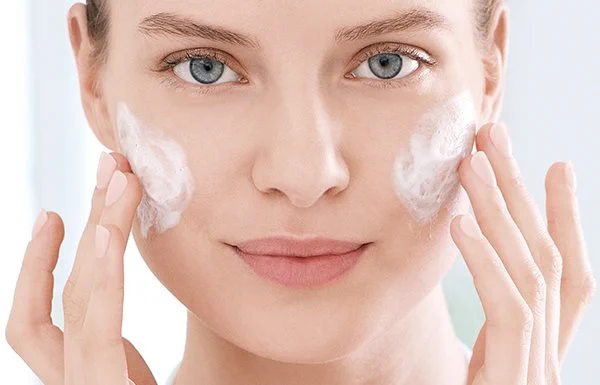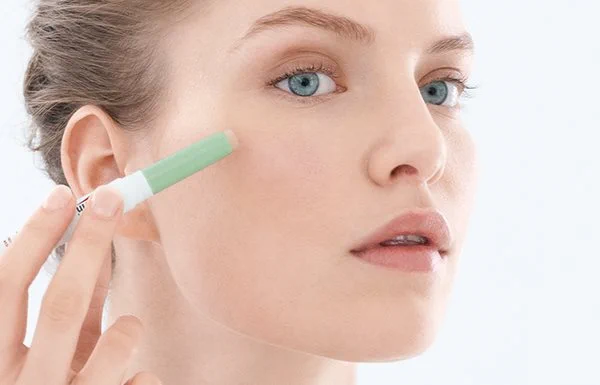Hyperpigmentation is a common skin issue that can cause distress when it's highly noticeable. Clinically proven to reduce the appearance of age spots and provide even and radiant skin, the Flawless Brightening range is a must-have. This blog post examines the causes of uneven skin tone, a revolutionary scientific discovery, and the surprising results of the Spotless Brightening range. What Causes Uneven Skin Tone? Uneven skin tone is usually caused by pigmentation issues like hyperpigmentation. It is due to the excess production of melanin. Melanocytes in our skin produce the dark pigment melanin. It gives natural skin colour and provides protection from the sun's rays. It appears as dark spots and age spots on the skin, making it appear uneven. Melasma and post-inflammatory hyperpigmentation (PIH) are also caused by this. Appearance of Hyperpigmentation on the Face Hyperpigmentation is popular in areas of skin that are regularly exposed to sunlight, such as the face and han...
An Ideal Skincare Routine for Acne-prone Skin
Cleansing
Effective cleansing − using products that have been specially formulated for acne-prone skin − is a key step in reducing and preventing acne. We recommend that you cleanse twice a day. In the morning to remove the excess sebum and dead skin cells that have built up overnight and in the evening to ensure the day’s dirt, as well as all traces of make-up and concealer, are fully removed before you go to bed. This will enable your skin to renew and repair overnight. We recommend that you use lukewarm water (water that is too hot can stress skin) and choose products that have been specially formulated for acne-prone skin such as Eucerin ProACNE Solution Cleansing Gel.
Research *1 shows that skin cleansed with Eucerin ProACNE Solution Cleansing Gel is able to absorb 9% more of certain active ingredients (L-Carnitine and Decanediol) providing significant additional benefits.
If you are looking for a quick and convenient cleansing solution or an additional make-up remover, you might like to try micellar water such as Eucerin ProACNE Micellar Water.
You may also benefit from using a scrub once a week to unclog pores and refine skin texture. Try Eucerin ProACNE Solution Scrub. We do not recommend using a scrub alongside acne medication as Isotretinoin, Benzoyl Peroxide, and Antibiotics can make skin more sensitive.
*1 Appropriate skin cleansing enhances the epidermal bioavailability of dermo-cosmetic anti-acne actives Decanediol and Licochalcone A, poster presentation, EADV 2013
Toning
A toner that has been specially formulated for acne-prone skin helps to clarify and refresh skin and prepare it to absorb maximum benefit from your care products. Tone as a last stage to your cleansing routine using a product such as Eucerin ProACNE Solution Toner. We don’t recommend that you use an alcohol-based toner if you are undergoing medical acne treatment. If you like the refreshing feel of a toner, try the alcohol-free Eucerin ProACNE Solution Micellar Water instead.
Care
Acne-prone skin requires moisturisation to help strengthen skin’s natural protective barrier but you’ll want to use a product that is non-greasy. If you have mild to moderate acne, and are not undergoing medical acne treatment, choose a soothing and mattifying moisturiser. And, for clearer and smoother-looking skin over time, you may like to incorporate a skin peel into your evening routine.
If you are undergoing medical treatment we do not recommend you use skin peels. Your skin may be experiencing side effects such as intense dryness and will benefit from special care.
Sun protection
Sun protection is an important step in your morning routine. Acne can cause pigmentation issues if over-exposed to the sun, and acne medications can make acne-prone skin even more sensitive to UV rays. Eucerin Sun Gel-Creme Oil Control Dry Touch SPF30 and SPF50+ offers the levels of protection that your skin needs and should be applied before your cover-up and make-up. If you’re applying sun protection after a topical acne treatment wait five minutes to allow the treatment to fully absorb. Find out more in acne and sun protection.
Cover-up and make-up
Use only products that have been specially formulated for acne-prone skin and are proven to be non-comedolytic. The right cover-up, such as Eucerin ProACNE Cover Stick should also work to treat and heal acne. And don’t forget to remove all traces of make-up before you go to bed. Find out more in make-up for acne-prone skin.
Originally posted here






Comments
Post a Comment